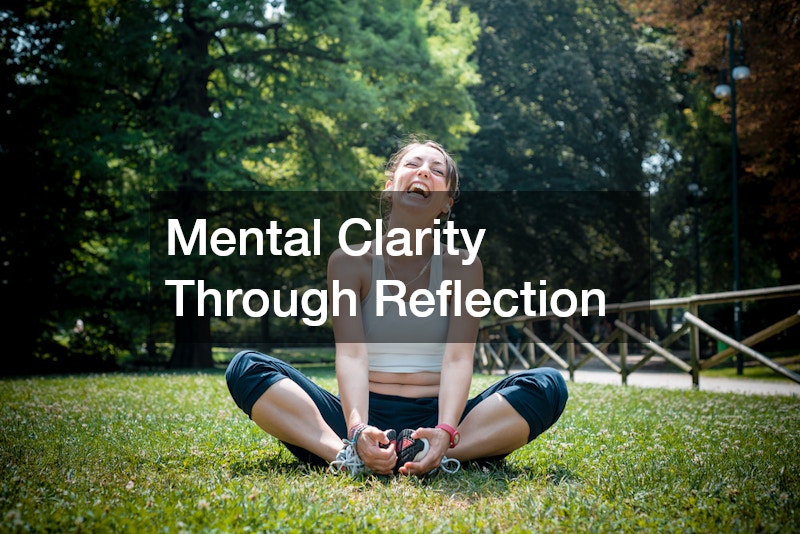Maintaining a lifestyle that prioritizes wellness is more important than ever in today’s fast-paced world. With numerous demands on our time and attention, it’s easy to lose focus on what truly nourishes the mind, body, and spirit. Wellness isn’t just about physical fitness or diet—it encompasses emotional health, mental clarity, and the balance between work, relationships, and self-care. A lifestyle centered on wellness encourages habits that promote overall vitality, helping you navigate daily challenges with more resilience and joy. By being intentional with how you live, you can create routines that support energy, happiness, and longevity. This approach is not about perfection but about cultivating consistency in small, sustainable ways. From the foods you consume to the environments you inhabit, every choice contributes to your well-being. Mindful practices, such as meditation or journaling, can foster mental clarity and emotional stability. Equally, creating spaces that reflect calm and order can improve focus and reduce stress, making daily life feel less chaotic. Incorporating movement throughout the day, whether through structured exercise or simple stretching, strengthens the body while boosting mood and energy levels. Nutrition also plays a vital role; choosing whole, unprocessed foods ensures your body receives the essential nutrients it needs to function optimally. Social connections and community engagement further enhance your sense of purpose and fulfillment, contributing to emotional health. By integrating these elements thoughtfully, individuals can craft a lifestyle centered on wellness that nurtures their physical, mental, and emotional needs. As this guide unfolds, practical strategies will be explored, highlighting ways to sustain balance, prevent burnout, and maintain an overall sense of well-being that supports both immediate vitality and long-term health. Additionally, staying flexible and adaptable allows you to maintain wellness practices even during periods of change or challenge, reinforcing resilience as a cornerstone of your lifestyle.
1. Morning Rituals That Transform Your Day

Starting your day with intentional routines can set the tone for maintaining balance and focus. Using microfibers to clean and refresh your environment creates a sense of order that positively affects mood. This small act demonstrates mindfulness in daily living, helping reduce stress and increase clarity. Integrating practices such as deep breathing, stretching, or journaling fosters mental awareness, aligning your mindset with your personal goals. Meals consumed mindfully, with attention to quality and portion size, reinforce a lifestyle centered on wellness by ensuring your body receives adequate fuel to sustain energy throughout the day. Even minor habits, like making your bed or organizing your workspace, signal your brain that the day is purposeful, reducing mental clutter. By adopting these morning strategies, you establish a consistent foundation that supports overall health and resilience. Over time, incorporating a short gratitude practice into your morning ritual can elevate your mood, helping you approach the day with a positive mindset and reducing the likelihood of stress accumulation.
2. Nourishing Your Body Through Mindful Choices
Hydration and diet play a crucial role in keeping energy levels stable and promoting physical health. Ensuring your air conditioner system operates efficiently can support a comfortable home environment, indirectly encouraging healthier eating and activity patterns. Consistent climate regulation makes it easier to prepare meals at home, engage in indoor exercise, or simply relax without stress. A lifestyle centered on wellness benefits from consciously selecting foods rich in vitamins, minerals, and healthy fats, while minimizing processed or nutrient-poor options. Creating meal plans, prepping ingredients in advance, and being deliberate about portion sizes reinforce awareness of what enters the body. Over time, these mindful choices foster improved digestion, energy, and mood, demonstrating the interplay between physical environment and personal wellness practices. Incorporating seasonal produce and experimenting with new recipes can also make nutrition exciting and sustainable, reinforcing long-term habits that keep you centered on wellness.
3. Movement That Energizes and Strengthens
Regular physical activity is a cornerstone of a lifestyle centered on wellness. Integrating a water heater system that efficiently supports hot showers encourages consistent routines like post-workout recovery or morning exercise. Movement doesn’t have to be extreme; even short daily sessions of walking, yoga, or strength training improve circulation, flexibility, and mental clarity. Exercise releases endorphins, promoting a positive mood and reducing stress. Pairing activity with recovery techniques, such as stretching or gentle massage, ensures the body remains resilient and less prone to injury. Mindful movement supports both physical vitality and emotional balance, creating a synergy that enhances overall health. Additionally, engaging in group fitness classes or outdoor activities can provide social stimulation, boosting motivation and reinforcing a community-focused aspect of wellness.
4. Mental Clarity Through Reflection

Incorporating moments of introspection fosters a lifestyle centered on wellness by reducing stress and increasing self-awareness. Rehabilitation therapy techniques, even when used outside of clinical settings, can inform practices that help process emotions and build resilience. Regular journaling, meditation, or guided reflection exercises create opportunities to recognize patterns, identify challenges, and reinforce positive thinking. These strategies enhance mental focus, decision-making, and emotional stability, allowing individuals to approach daily tasks with confidence. By dedicating time to reflection, you cultivate a balanced perspective that nurtures both mental and emotional well-being. Introducing visualization exercises and goal-setting sessions can further clarify intentions and motivate progress in both personal and professional areas.
5. Connecting With Nature and Your Surroundings
Spending time outdoors and curating your living environment encourages relaxation and reduces stress, central elements of a lifestyle centered on wellness. Landscaping supply choices, from plants to garden layouts, can influence the ambiance of your home or outdoor spaces. Natural light, greenery, and thoughtfully arranged outdoor areas create calming, restorative settings. Exposure to sunlight regulates circadian rhythms and boosts vitamin D levels, enhancing mood and energy. Engaging with nature, whether through gardening, walking, or simply sitting outside, supports mindfulness and physical activity, fostering a deeper connection to the world around you while reinforcing healthy routines. Even short periods outdoors during breaks can improve concentration, reduce anxiety, and reinforce your commitment to being centered on wellness.
6. Creating Spaces That Encourage Rest
Sleep is a critical component of wellness, influencing cognitive function, emotional stability, and overall health. By designing bedrooms and personal spaces that are quiet, dark, and comfortable, individuals can prioritize restorative rest. Minimal clutter, soothing colors, and comfortable bedding enhance the quality of sleep. Maintaining a lifestyle centered on wellness involves recognizing the importance of consistent sleep schedules and creating rituals that cue the body for rest. Reducing exposure to screens before bed and incorporating relaxation techniques such as reading or light stretching can improve sleep quality, ensuring both mental and physical rejuvenation for the next day. Using calming scents, soft music, or gentle lighting can further enhance restfulness, creating an environment conducive to deeper, more restorative sleep.
7. Celebrating Life With Joyful Experiences

Meaningful social interactions and celebrations enrich life, promoting emotional wellness and a lifestyle centered on wellness. Visiting local wedding venues for inspiration or participation in joyful events can enhance your sense of community and connection. Celebrations, even small ones, offer opportunities to express gratitude, create memories, and reinforce relationships. Shared experiences stimulate emotional well-being, providing perspective and fostering resilience. Recognizing the importance of social engagement and integrating it intentionally into daily life enhances overall life satisfaction and supports emotional balance. By actively participating in gatherings, both large and small, individuals can nurture bonds and create lasting positive experiences. Planning thoughtful rituals, even informal ones, can strengthen connections and provide a sense of continuity and joy in daily life.
8. Hydration and Environmental Health
Access to clean water is essential for maintaining health and vitality. Implementing proper water treatment systems ensures that water consumed is safe and supports physical wellness. Staying hydrated contributes to energy, cognitive function, and metabolic processes. A lifestyle centered on wellness integrates hydration into daily routines, reminding individuals to drink water regularly and prioritize quality. Simple practices, like using reusable bottles and tracking daily intake, encourage consistency and promote a greater awareness of personal health habits. By valuing environmental health alongside personal wellness, you reinforce a holistic approach to living well. Additionally, pairing hydration with mindful consumption of nutrient-rich beverages, like herbal teas, can support digestive health and relaxation.
9. Supporting Wellness Through Services
Professional support can ease burdens and enhance the quality of daily life, reinforcing a lifestyle centered on wellness. Engaging caterers for events or meal planning can reduce stress and create opportunities to enjoy balanced, healthy meals without added pressure. Outsourcing tasks when necessary allows time for rest, exercise, and mindfulness practices. Prioritizing services that alleviate everyday stressors ensures that energy is directed toward self-care and personal growth. By integrating these supports thoughtfully, individuals can maintain focus on wellness while managing responsibilities efficiently, strengthening the balance between productivity and personal well-being. Taking advantage of these services ensures consistency in wellness routines without feeling overwhelmed by daily demands.
10. Mindful Practices for Daily Life

Incorporating small acts of mindfulness throughout the day keeps routines intentional and purposeful. Techniques such as mindful breathing, walking, or listening exercises cultivate a present-focused mindset, enhancing emotional stability. By creating moments of reflection and awareness, a lifestyle centered on wellness becomes achievable, even amidst daily challenges. Mindfulness reinforces the connection between thoughts, emotions, and actions, encouraging healthy decision-making and a greater appreciation for life’s experiences. Over time, these consistent practices enhance resilience, reduce stress, and strengthen overall well-being. Integrating mindfulness into routine activities, like cooking or commuting, can make it practical and continuous.
11. Comfort and Safety in Your Environment
Ensuring your home functions safely and comfortably contributes to a lifestyle centered on wellness. Reliable electrical installations support daily activities, reduce risk, and create an environment where stress is minimized. Simple upgrades, maintenance, and attention to safety improve peace of mind, allowing individuals to focus on wellness practices without distraction. A secure, well-maintained environment encourages relaxation, supports restorative activities, and enables consistent routines that reinforce physical and emotional health. By addressing environmental comfort and safety, you lay the groundwork for a more balanced, centered life. Enhancing accessibility and organization in your home can also reduce frustration and support consistent wellness behaviors.
12. Sustaining Wellness Through Organization and Planning
Long-term wellness relies on structured routines, organization, and accessible solutions that simplify daily life. Climate controlled self storage can assist in maintaining a tidy, organized home, reducing clutter that contributes to stress and distraction. By planning ahead, establishing priorities, and creating systems for both personal and professional responsibilities, individuals can maintain focus on habits that support health and well-being. A lifestyle centered on wellness is reinforced through intentionality, where thoughtful planning ensures that resources, time, and energy are allocated toward practices that enhance physical, emotional, and mental vitality. Emphasizing organization, preparedness, and accessible solutions provides the foundation for sustained wellness, allowing individuals to navigate life with resilience, clarity, and balance. Integrating these practices consistently encourages both immediate benefits, such as reduced stress and increased energy, and long-term outcomes, including improved health, stronger relationships, and a greater sense of fulfillment. By valuing preparation and thoughtful resource management, wellness becomes a tangible, attainable lifestyle rather than an abstract goal, allowing individuals to experience its full benefits daily. Additionally, reviewing progress periodically and adjusting routines ensures that wellness strategies remain relevant, effective, and adaptable to changing life circumstances.
Creating a lifestyle centered on wellness requires intentional choices that nurture the body, mind, and spirit. From cultivating morning rituals to integrating mindful movement and reflection, each habit contributes to a holistic approach to well-being. Attention to environmental factors, such as clean water, safe electrical systems, and organized spaces, further supports mental clarity and physical health. Social connections, celebrations, and the use of supportive services allow for a balanced approach to responsibilities and personal enjoyment. By prioritizing sleep, hydration, nutrition, and consistent mindfulness practices, individuals can maintain energy, reduce stress, and strengthen resilience. A lifestyle centered on wellness is not about perfection but about creating a sustainable rhythm that harmonizes daily routines, personal goals, and emotional needs. Through intentionality, thoughtful planning, and ongoing reflection, wellness becomes an achievable, lifelong practice that enhances quality of life and fosters a sense of fulfillment. By embracing these strategies, you can build a foundation for health and happiness that supports both immediate vitality and long-term growth, ensuring that each day contributes meaningfully to your overall well-being. Prioritizing these practices encourages consistency, reduces burnout, and empowers individuals to live fully, remaining centered on wellness in every aspect of life. By continuously exploring new strategies, adapting to personal needs, and celebrating small victories, wellness becomes a dynamic, enriching journey rather than a static goal.



